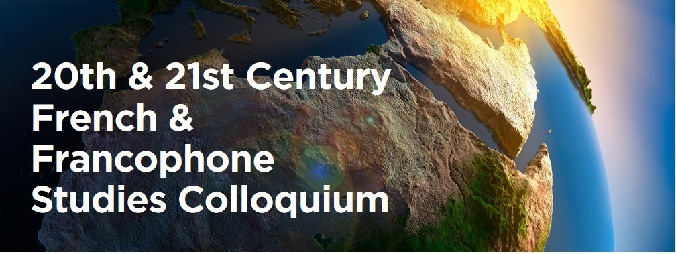Modern Languages and Literatures, Department of

20th and 21st Century French and Francophone Studies International Colloquium
Date of this Version
3-18-2020
Document Type
Article
Citation
20th & 21st Century French and Francophone Studies International Colloquium, University of Nebraska-Lincoln, March 26-28, 2020.
Abstract
The contemporary French novel is striking in its diversity, its complexity, and its resistance to easy classification. This is not an utterly new phenomenon (one recalls both Gide and Queneau, in the 1920s and 1930s respectively, describing the novel as a fundamentally lawless genre), but it is legitimate to say that the novel's horizon of possibility has broadened during our time, allowing for new kinds of expression. Those latter may be based in formalist experimentation (I'm thinking of writers like Jacques Roubaud, or Paul Fournel, or Stéphane Vanderhaeghe), or personal confession (Édouard Louis, Camille Laurens, Philippe Forest, for instance), or an insistence upon narrativity (Jean Rouaud, Christian Gailly, Christian Oster), or autofiction (Christine Angot, Annie Ernaux, Chloé Delaume), or social and political concerns (Gérard Gavarry, François Bon, Laurent Mauvignier), or hyperfiction (Manuela Draeger, Lutz Bassmann, Elli Kronauer), or indeed in a conscious hybridization of any of the foregoing directions.
Among all of those various possibilities, I am interested in the way that certain French novelists in recent years have turned toward the "real," toward history and biography. I am thinking of books like Jean Echenoz's Ravel (2006), Courir (2008), and Des éclairs (2010), for example; or Lydie Salvayre' Hymne (2011), Annie Ernaux's Les Années (2008), Jean Rolin's Crac (2019), Olivier Rolin's Le Météorologue (2014), and Marie Cosnay's Villa Chagrin (2006), to name just a few. Most especially perhaps, Patrick Deville comes to mind. His example is a very remarkable one, insofar as he chose to retool his writerly skills exhaustively in mid-career. After five relatively conventional, brief, "fabulist" novels published from 1987 to 2000 at the Éditions de Minuit, he brought out his "equatorial trilogy": Pura Vida: Vie et mort de William Walker (2004), Équatoria (2009), and Kampuchéa (2011), collected in an omnibus edition entitled Sic transit (2014). Focusing upon Central America, the Congo, and Cambodia, respectively, these texts may be best imagined as biographies of place. Deville relies upon history, testimony, and personal observation in order to tell the stories of those places, animating them in a mode which is indisputably novelistic—if by "novelistic" one means a narrative form in prose that can reconcile and accommodate a multiplicity of expressive purposes.
Included in
Comparative Literature Commons, French and Francophone Literature Commons, Other French and Francophone Language and Literature Commons


Comments
Copyright © 2020 Warren Motte